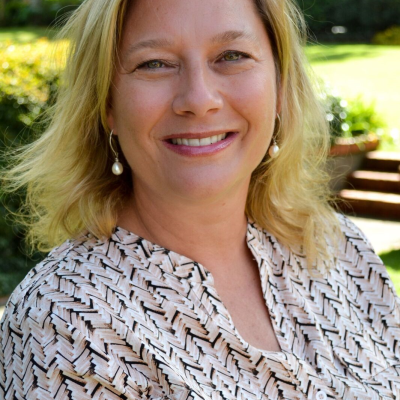Peatlands: Why they matter for the climate, people, and the planet.
Centre for Environmental and Information Technology
- Room 1015
Monday,
Feb 4, 2019 at 7:00 PM EST
{
"name":"Peatlands: Why they matter for the climate, people, and the planet.",
"description": "https://ticketfi.com/event/2831/peatlands-why-they-matter-for-the-climate-people-and-the-planet\n\n\"In commemoration of the Ramsar agreement, the Ecohydrology Research Group and University of Waterloo invites you to attend an evening public lecture by Dianna Kopansky, the Global Peatlands Initiative coordinator, UN environment.\\n\\nLecture Abstract: Peatlands are a type of wetland that occur in almost every country on the globe. They represent close to half of the world’s wetlands. World Wetlands Day on 2 February aims to highlight the importance of wetland ecosystems and how they can help us fight climate change. Wetlands help us prepare for, cope with and bounce back from the impacts of climate change.\\nWhile peatlands cover only 3 per cent of the global land surface, they store vast amounts of carbon. This makes peatlands one of our greatest allies in the fight against climate change. By conserving and restoring peatlands globally, we can reduce emissions and revive an essential ecosystem that provides many services, for people, the planet and climate - including their vital role as a natural carbon sink.\\nA lack of appreciation of this unique ecosystem and a lack of awareness of the benefits of peatlands means that they have been severely overexploited and damaged by actions such as drainage, agricultural conversion, burning and mining for fuel. About 15% of the world’s peatlands – covering less than 0.4% of the global land surface – have been drained. This has released huge amounts of greenhouse gases, such as carbon dioxide (CO2), from the carbon stored within peat soils into the atmosphere. These emissions can and should be avoided – and we have the knowledge and innovations to do so.\\nFor the world to keep the global average temperature increase under two degrees Celsius then peatlands must gain our attention – locally and globally. Urgent action must be taken everywhere, especially in the tropics to keep the carbon locked in peatlands where it is – wet, and in the ground.\\n \"",
"startDate":"2019-02-04",
"endDate":"2019-02-04",
"startTime":"19:00",
"endTime":"20:00",
"location":"Centre for Environmental and Information Technology Room 1015 - University of Centre for Environmental and Information Technology Waterloo ON N2L 3G1 Canada",
"label":"Add to Calendar",
"options":[
"Apple",
"Google",
"iCal",
"Microsoft365",
"Outlook.com",
"Yahoo"
],
"timeZone":"US/Eastern",
"trigger":"click",
"inline":true,
"listStyle":"modal",
"iCalFileName":"invite.ics"
}
Event Details
Lecture Abstract: Peatlands are a type of wetland that occur in almost every country on the globe. They represent close to half of the world’s wetlands. World Wetlands Day on 2 February aims to highlight the importance of wetland ecosystems and how they can help us fight climate change. Wetlands help us prepare for, cope with and bounce back from the impacts of climate change.
While peatlands cover only 3 per cent of the global land surface, they store vast amounts of carbon. This makes peatlands one of our greatest allies in the fight against climate change. By conserving and restoring peatlands globally, we can reduce emissions and revive an essential ecosystem that provides many services, for people, the planet and climate - including their vital role as a natural carbon sink.
A lack of appreciation of this unique ecosystem and a lack of awareness of the benefits of peatlands means that they have been severely overexploited and damaged by actions such as drainage, agricultural conversion, burning and mining for fuel. About 15% of the world’s peatlands – covering less than 0.4% of the global land surface – have been drained. This has released huge amounts of greenhouse gases, such as carbon dioxide (CO2), from the carbon stored within peat soils into the atmosphere. These emissions can and should be avoided – and we have the knowledge and innovations to do so.
For the world to keep the global average temperature increase under two degrees Celsius then peatlands must gain our attention – locally and globally. Urgent action must be taken everywhere, especially in the tropics to keep the carbon locked in peatlands where it is – wet, and in the ground.
Speakers
Location
Centre for Environmental and Information Technology - Room 1015
200 University Ave W Waterloo, ON N2L 3G1 Canada
Tickets
Type |
Price |
|---|---|
|
General Public |
Free |
|
Research symposium attendees |
Free |
|
UWaterloo students/faculty/staff |
Free |
Organizer Details

Science Outreach at UWaterloo
Waterloo Science Outreach provides programs and enrichment activities to increase awareness of the importance and value of Science to society. It also stands to highlight the contributions that Waterloo Science makes to scientific understanding. We are passionate about making science and research an accessible and comprehensible topic for all interested audiences. Through events and public lectures, we provide numerous ways for you to engage in a lifelong discovery of science.




